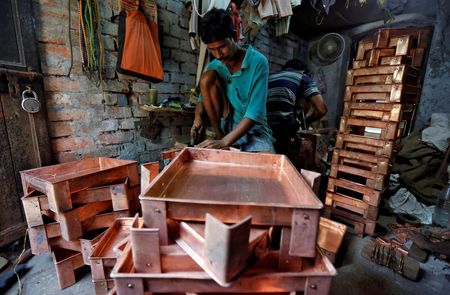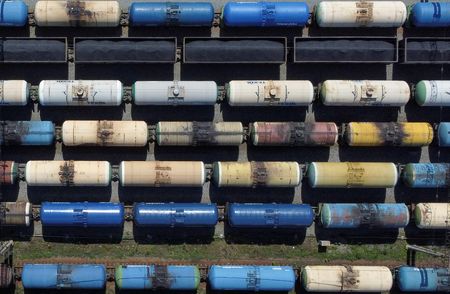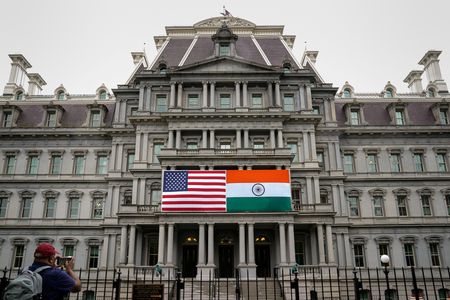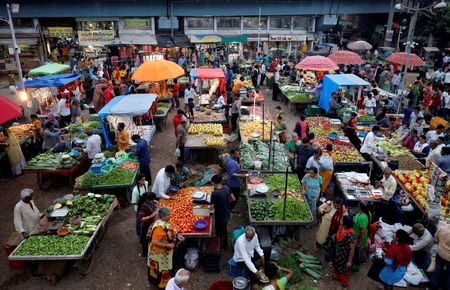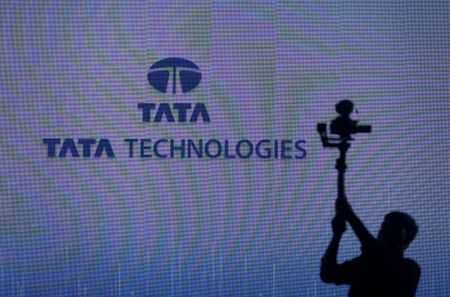By Neha Arora and Katya Golubkova
NEW DELHI/TOKYO (Reuters) -India’s quality control order on copper cathodes is likely to reduce domestic availability due to “costly and unnecessary compliance burdens” on foreign suppliers, the Bombay Metal Exchange said.
India, the world’s second-largest importer of refined copper, imposed quality controls on copper cathode imports in December, requiring all suppliers, foreign and domestic, to ensure there were checks on substandard products in the country.
The quality control curbs have led to a decline in imports, the Bombay Metal Exchange (BME) said – a claim rejected by the government.
“With domestic licensees unable or unwilling to supply the market and unreliable foreign alternatives, the downstream sector faces real and immediate shortages,” the BME said.
India’s federal Ministry of Mines did not immediately respond to an email seeking comment.
To meet the quality control rules, suppliers have to get a licence from the Bureau of Indian Standards, which oversees quality control in India.
The quality controls have faced a legal challenge from trade bodies in India, including the BME and the Bombay Non-Ferrous Metals Association.
The government has defended the quality control order in court against claims that it would lead to supply shortages and create a supply monopoly.
The BME said all five domestic licensees use copper cathodes entirely for their own consumption.
“As for foreign … licensees, four of the 10 do not supply copper cathodes at all, offering only ingots or semi-finished forms,” the BME said in a statement to Reuters.
Among the 10 foreign suppliers who have secured certification under the new rules, seven are from Japan, two from Malaysia, and one from Austria, the Indian government said last month.
Japan accounts for about two-thirds of India’s refined copper imports, followed by Tanzania and Mozambique.
The BME said there are growing indications the Japanese licensees will withdraw from the Indian market due to costly and unnecessary compliance burdens.
Japanese trading house Marubeni, which was involved in the licensing process for six Japanese smelters, said: “No particular issues have arisen concerning supply to India.”
Copper is one of 30 minerals identified as critical by India in 2023, with domestic demand expected to double by 2030. Major domestic suppliers include Hindalco Industries and state-owned Hindustan Copper.
(Reporting by Neha Arora in New Delhi and Katya Golubkova in Tokyo; Editing by Mayank Bhardwaj and Jane Merriman)

